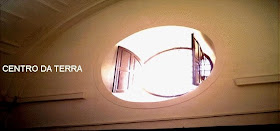" A
unique biotechnology start-up company have developed a method of growing bricks
from nothing more than bacteria and naturally abundant materials. Having
recently won first place in the Cradle to Cradle Product Innovation Challenge, bioMason has
developed a method of growing materials by employing
microorganisms.
Arguing that the four traditional building materials –
concrete, glass, steel and wood – both contain a significant level of embodied
energy and heavily rely on limited natural resources, their answer is in high
strength natural biological cements (such as coral) that can be used “without
negative impacts to the surrounding environment.”
According
to bioMason, “global cement production in 2008 amounted to 2.8 billion
tons, with equivalent quantities of CO2 released into the atmosphere”.
The
energy intensive series of processes, ranging from extracting of the raw
material, transportation, and fuel sources for heating kilns, contribute to the
fact that “40% of global carbon dioxide emissions are linked to
the construction industry.”
“Bacteria,
which provide a precise environment to form in combination with a nutrient,
nitrogen and calcium source allow for the formation of natural cement in
ambient temperatures, taking less than five days to produce a pre-cast
material.” bioMason has created a market viable model which involves
licensing existing masonry manufacturers to begin growing.
The inputs for
biocements are inexpensive, globally abundant, and can be sourced from waste
byproducts.
Rather than being cast in fuel intensive furnaces, the
material is grown in ambient temperatures. The water component used
to deliver the cementation reagents is recycled in a closed-loop system and
reused in the manufacturing process.
Furthermore, since biological cements
are formed in a different crystalline process than Portland based cements,
“recent tests have been successful with seawater.”
See original Archdaily post here.






































![Terra [In]cognita project: Earthen architecture in Europe](http://1.bp.blogspot.com/-36uMVOoZMLE/TazQAiZE1KI/AAAAAAAAByA/NCxO8IKqLTg/s285/logoterraincognita.jpg)
